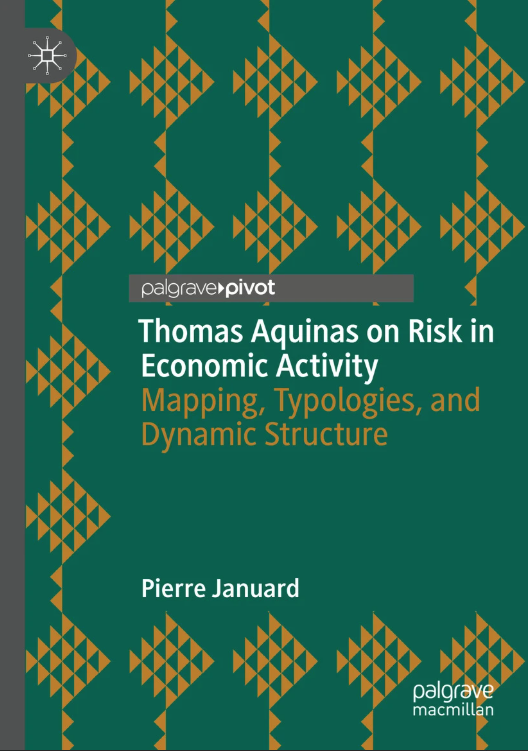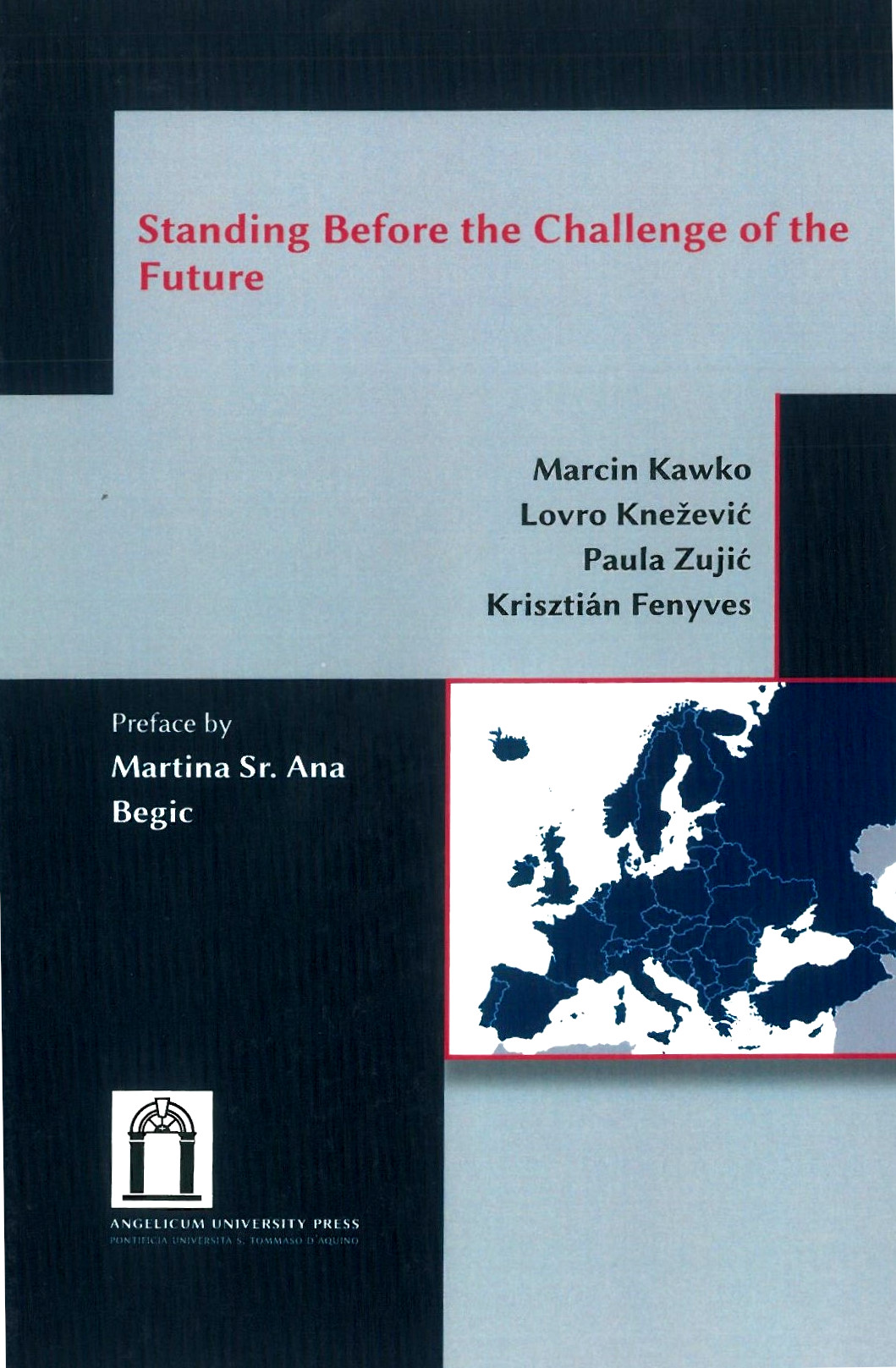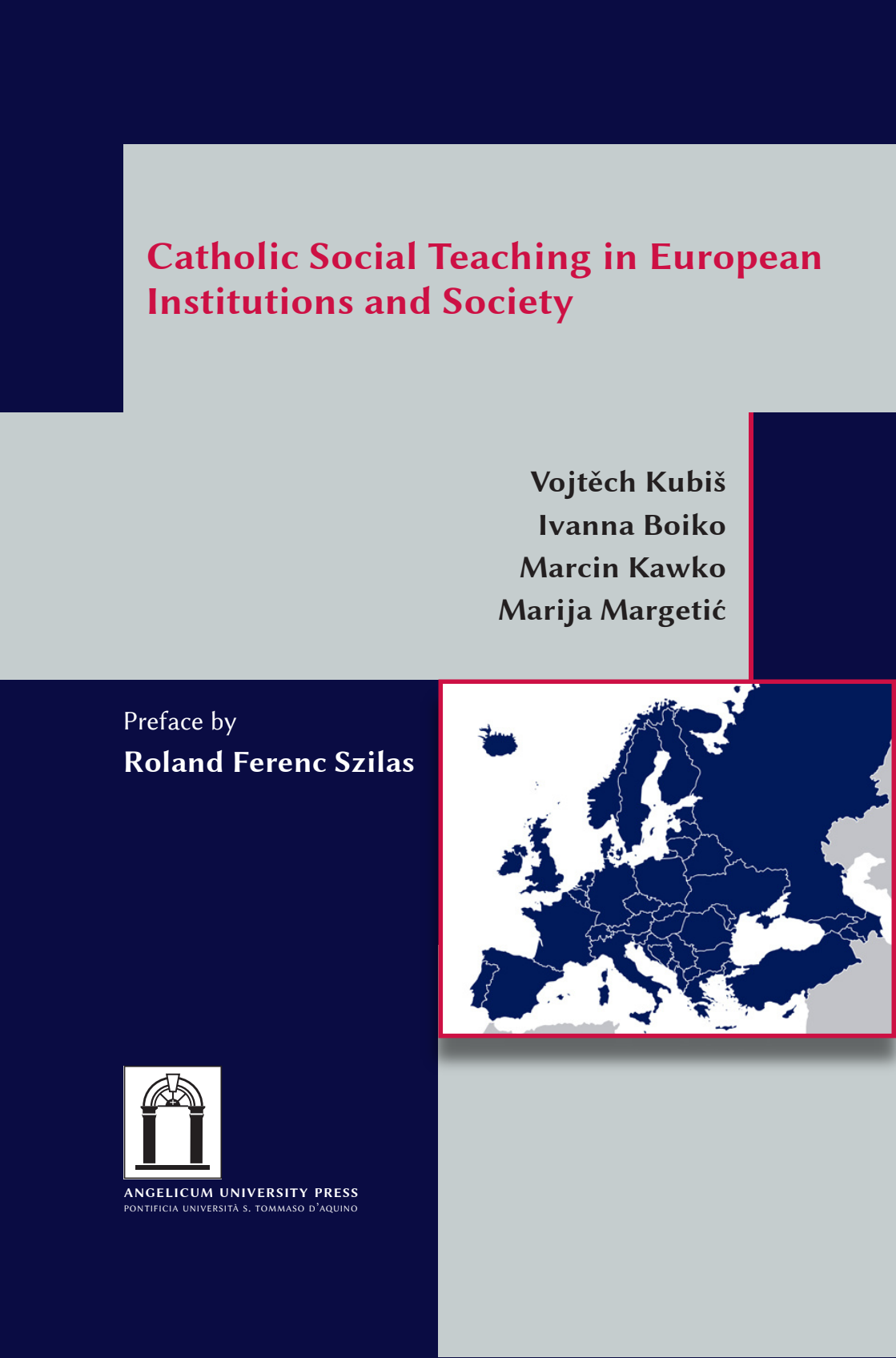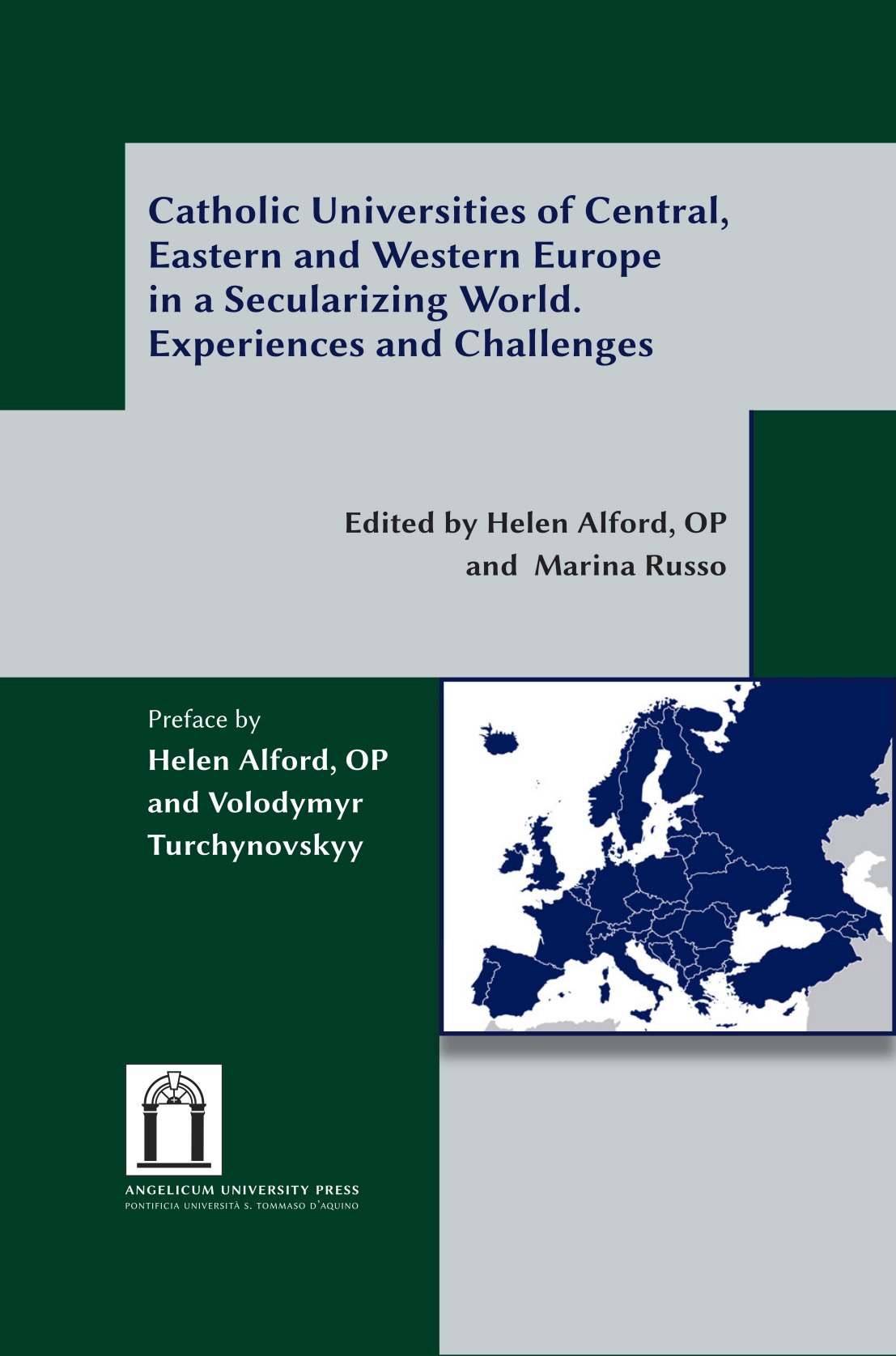 N.B. This text is reproduced in the form in which it was given. A more complete version will subsequently be published in book form.
N.B. This text is reproduced in the form in which it was given. A more complete version will subsequently be published in book form.
The theological task is a vocation that arises from, and is exercised at, the heart of the ecclesial community. Its point of departure is, in fact, the gift of faith through which we receive the Word of God, and the contributions of its reflection are placed at the service of the evangelising mission of the Church. This context gives theology its raison d’être; specifies its field of action; nourishes it with the sources of Revelation, Scripture and Tradition. enriches it with the acknowledgment of the Magisterium’s charism, and puts it in touch with other ecclesial functions.
Theology is a way of speaking about God inspired by faith; it is a language about God, who is, in truth, its only subject. We must approach the mystery of God with respect and humility; but, from a biblical perspective, mystery does not mean something that must remain secret. Rather, mystery must be pronounced and communicated because to be shared belongs to the very essence of mystery (cf. Rom. 16, 25-26). For this reason, theology must enter into a dialogue with the mentality and the culture of those who listen to the Word. At the same time, the theologian must be conscious that his or her efforts cannot exhaust the breadth of the Word contained in the Scriptures and transmitted by the living tradition of the Church1.
It is in this context that we attempt to examine briefly the dialogue between the social teaching of John Paul II (not the whole of the Pope’s teaching) and liberation theology. Liberation theology, as we know, is a theological framework made up of various tendencies, and what I can offer here is my own personal point of view on this topic.
The subject is vast, and so we will have to limit ourselves here to some key points. The social teaching of the Church is part of the field of social ethics, and is centred on the dignity of the human being as the indispensable reference for all social interaction. John Paul II made this clear from the publication of his first social encyclical on human work, basing his reflection on a solid biblical foundation. Theology, as the intelligence of faith, includes many other aspects of Christian revelation, but in these pages we will only touch on certain aspects of the theology of liberation as it relates to social teaching. It is possible to emphasize three aspects, always keeping in mind that there are several more that could be analysed: the preferential option for the poor, the promotion of justice as part of the proclamation of the Gospel, and social conflict.
1. The preferential option for the poor
A month before the beginning of the Council, John XXIII posed the question of the Church of the poor. The Pope said, “For the underdeveloped countries, the Church presents itself as it is and as it wants to be: as a Church of all, and particularly as the Church of the poor.” It is a brief statement, but one in which each word counts. It calls to mind the reality of poverty in the world, a reality about which humanity has become increasingly aware, and one which the Church must consider as pertaining to its own realm of concern. It speaks of a Church that belongs to all, but one in which the poorest must come first. The love of God is universal; no one is outside God’s love. It is within this framework that one must understand the preference (not exclusivity) shown towards “the least of these, my brothers and sisters,” of whom Jesus speaks (cf. Mt. 25). This phrase, which was not taken up by the Council, did appear in some brief references by Paul VI. John Paul II, however, referred to it on several occasions. The first time was in Laborem exercens (LE), within a very significant context, when commenting on solidarity with workers and their right to life and justice. He said, “The Church is firmly committed to this cause, for she considers it her mission, her service, a proof of her fidelity to Christ, so that she can truly be the Church of the poor.” (n.8).
The theme of the Church of the poor (and of all) was very present in the Latin American and Caribbean Church in the 60’s and 70’s, and helped to constitute what has become one of the wellsprings of expression that was built stone by stone – both pastorally and theologically – during those years: the preferential option for the poor. The Conference of Puebla adopted the expression and deepened its meaning. John Paul II mentions it in several of his writings. For example, he uses it in Centesimus Annus (CA) where, offered as a re-reading of Rerum Novarum, he affirms that, “The content of the text is an excellent testimony to the continuity within the Church of what today is called the «preferential option for the poor».” It is an option which is defined in Sollicitudo Rei Socialis (SRS) as “a special form of primacy within the exercise of Christian charity” (n.42)2. The Pope directly links the Social Doctrine of the Church (from its beginning) with the formulation of the preferential option for the poor.
The preferential option for the poor, with its three basic dimensions:
- as a component in the following of Jesus,
- as a point of focus within the task of doing theology,
- and as oriented towards the proclamation of the Gospel
is, from a liberation perspective, the heart of all theological reflection, as it is done in Latin America. Benedict XVI, in his inaugural speech at the Conference of Bishops in Aparecida, reminded us that, “The preferential option for the poor is implicit in the Christological faith in the God who has become poor for us, to enrich us with his poverty” (cf. 2 Cor. 8,9) – (n.3)3. It is no surprise, then, that the Conference of Aparecida affirms that, “The preferential option for the poor is one of the traits that characterises the face of the Church in Latin America and the Caribbean” (n. 391). This Christological foundation, which makes an option on behalf of poverty, has been studied in-depth by the theology of liberation.
This topic – maybe the most important with regard to the topic at hand – deserves a more profound treatment, but here we simply point to it, and its vast scope, in a general way.
The commitment to justice as part of the Good News
The proclamation of the Good News carries with it a demand for social justice. This demand is a pivotal aspect of the prophetic tradition of the First Testament, and one which we encounter again at the heart of the Sermon of the Mount. This time, though, it appears in the form of a mandate that summarizes and gives meaning to the life of the believer: “Seek first the Kingdom of God and its justice” (Mt. 6, 33).
The proclamation of the Reign of God places the meaning of human history beyond human history, thus bringing it to its complete fulfilment; yet at the same time, it is present in history even now. That double dimension is expressed in the classic formula: “already, but not yet.” The Reign of God is simultaneously a gift and a task, a responsibility that leads us to the creation of a more just and loving world.
It is precisely in the space between grace and task where the life of a disciple of Jesus can be found, and thus, it is also in that same space that we can speak about the Kingdom of God, which we welcome in faith. From its very beginning, Liberation Theology pondered the question: Where does the building of a just world fit within the proclamation of the Kingdom? There was a time in the theological reflection of previous decades when the evangelizing task of the Church was seen as disconnected from the so-called social promotion or the building of the earthly city. This mentality was mainly the result of a greater autonomy of the temporal realm within the modern world. Even though this approach had some helpful aspects, it finally went beyond its initial intentions, impoverishing the extension of the Gospel message. Nevertheless, little by little the promotion of justice began to be considered a central component of the evangelising task of the Church4.
On this matter, John Paul II spoke clearly and repeatedly, thus lending a great impulse to this perspective. In his talk in Puebla (1979), he maintained that the “evangelising mission [of the Church] contains an indispensable dimension, namely the work for justice and the promotion of the human being” (III, 2). And in words directed to the bishops of Honduras (2001), the pope said that, “Human promotion forms part of our task of evangelisation because it supports the integral liberation of the person.”
We return now to the Aparecida Conference, where Benedict XVI affirmed that, “Evangelisation has always been united to human promotion and authentic Christian liberation” (Talk n.3). And at another moment he added, “The Church is an advocate for justice and for the poor,” without, however, identifying herself “with politicians or with the interests of any given political party” (n.4). Finally, the conclusions of Aparecida returned again to this topic: “This is the essential task of evangelisation, which includes the preferential option for the poor, integral human promotion and authentic Christian liberation” (n. 146), and, “Taking on with renewed force this option for the poor, we manifest that every evangelising process implies human promotion and authentic liberation” (n. 399).
We have now reached a consensus. The promotion of justice is seen as an essential part of the proclamation of the Gospel; it is clearly neither the totality of our evangelisation, nor just something we tack onto the end of our proclamation of the Good News. The present formulation avoids both impoverishing separations and possible confusions.
Timothy Radcliffe, speaking of the Christological dimension of evangelisation, says, “The Word became flesh, and now, in our mission, the flesh becomes word.”5 The Gospel’s reper - cussion within human history is not simply translated into a set of social and political projects that then create a more human and just society, though the Gospel does demand and push for them (cf. CA n.5 SRS n.41). At the same time, though, the historical and social events to which the Gospel is related allow us to discover new, unarticulated aspects and challenges of that message.
2. Conflict within history
The thorny subject of social conflict is another point where the teachings of John Paul II and the theology of liberation come together. Human history is marked by different clashes between peoples, groups, social classes, races, and nations – often leading to harsh confrontations. In dealing with the reality of poverty, we have been forced to face the challenges that the very existence of poverty in the world poses to us. If we analyse the social reality of Latin America, it becomes impossible to ignore the fact that conflict exists between sectors and groups of people within society. To point it out does not mean that we are pleased by it. It is, indeed, unacceptable from a human and Christian point of view. We wish that things were different, and for that reason we must look for a way to overcome those oppositions. In doing theology we cannot ignore this situation, because it raises questions about the universality of Christian love in light of our faith and the demands of the Kingdom.
The Conferences of Medellin and Puebla speak of poverty as “inhuman” and “anti-evangelical.” In our theological reflection we have maintained that, in the end, what we are speaking of is an early and unjust death. The matter becomes even more pressing if we are conscious of the fact that poverty is not an unavoidable fact, a simple “given” – and still less an expression of the will of God; it is the result of our own actions. We human beings have created this reality, and thus it is in our hands to eliminate it. Unjust socio-economic structures and discriminatory mental categories are among the causes of poverty and the exclusion of peoples. It is, in fact, a very unfortunate situation, but the reality does not disappear by simply denying its existence. The situation is a delicate one, and has given rise to superficial solutions that do nothing but make the situation worse, promoting violent choices and actions that end up involving others.
The recognition of social conflict, and concretely of the struggle of classes, appears in several documents of the Magisterium of the Church. The texts of Pius XI are a good example (Quadragesimo Anno, nn. 82 and 83 and 115). The Conference of Medellin spoke about this subject in its document called Paz (Peace); Puebla touched on the subject again (nn. 486, 534 and 1259). But it was John Paul II who, shortly thereafter, produced a seminal text in Laborem Exercens.
In the section on “Conflict between labour and capital in the present phase of history,” the Pope writes: “It is known that throughout this period, which is not yet over, the issue of work has been posed in the context of the great conflict. In the age of industrial development, and alongside it, this issue has emerged – caught between the «world of capital» and the «world of those who labour», or to say it in another way, between the small but highly influential group of entrepreneurs, property owners or holders of the means of production, and the vast multitude of people who lack these means and who share in the process of production exclusively by their labour” (n. 11). A little later the Pope reiterates the presence of concrete people behind a seemingly abstract opposition: “It is obvious that, when we speak of opposition between labour and capital, we are not dealing only with abstract concepts or «anonymous forces» that are operating in the world of economic production. Behind the concepts there are people, living, real people. On one side are those who do the work without being the owners of the means of production; on the other side are those who act as entrepreneurs and those who own the means of production, or at least, who represent the owners” (n. 14). The importance of people in relationship to things constitutes one of the most relevant points of the encyclical, and should not be missed, but given due consideration, even when it is an issue that can be faced only painfully.
Having said this, we are presented with an enlightening distinction. The ideological interpretation of the “socio-economic conflict” has forced it to be expressed in terms of the conflict between Liberalism and Marxism. “When seen in that way,” notes John Paul II, “the real conflict, the one between the world of labour and the world of capital, is transformed into a systematic class struggle, conducted by methods that are not only ideological, but instead, and above all else, political.” (LE, n.11). The “real conflict” is at the level of lived reality, but it can be transformed into a program of “class struggle” within a wider political strategy. They are different things, though. It is true, misunderstandings are possible, but that is precisely why the Pope’s distinction between reality and programming is particularly enlightening, and has helped us to put things in their right perspective.
Undoubtedly, it is possible to deal with other topics, such as the structural causes of poverty, a point which John Paul II has highlighted on several occasions; or the social dimension of personal sin (briefly referred to as ‘social sin’), a theme treated by the Pope in one of his documents; or the use of the social sciences – always critically – both in analyzing reality and in theological reflection. There are, of course, many other topics6. The social teaching of John Paul II is monumental and has invigorated the Social Doctrine of the Church, helping it to face new problems, using strong vocabulary to denounce poverty in the world, and making use of a solid theological foundation in exploring the various topics.
documents; or the use of the social sciences – always critically – both in analyzing reality and in theological reflection. There are, of course, many other topics6. The social teaching of John Paul II is monumental and has invigorated the Social Doctrine of the Church, helping it to face new problems, using strong vocabulary to denounce poverty in the world, and making use of a solid theological foundation in exploring the various topics.
NOTE:
1 "As God’s Word in written form, the Bible has a richness of meaning that can never be completely articulated in any systematic theology, nor can it remain its prisoner." (La interpretación de la Biblia en la Iglesia, Pontificia Comisión Biblica; Madrid, PPC, 1994, p. 108).
2 F. Chamberlain, “La opción preferencial por los pobres en el magisterio de la Iglesia universal”, en El rostro de Dios en la historia (Lima, CEP-IBC-UCP, 1996) 185-198.
3 Aparecida quotes the text and comments: “This option is born from our faith in Jesus Christ, the God made human, who has become our brother” (cf. Hb 2, 11-12) - (n. 392).
4 See the texts on this from the Medellin Conference (Justice n.3); the Roman Synod (1971), Justice in the world (n.37); Paul VI, Evangelii Nuntiandi, n.29.
5 “Mission to a Runaway World”, SEDOS, vol.33, n.1 (2001).
6 For some of these, see C. I. González, “La teologia de la liberacion a la luz del magisterio de Juan Pablo II en America Latina", in Gregorianum vol. 67, no, 1 (1986).
 IT
IT  EN
EN 
















